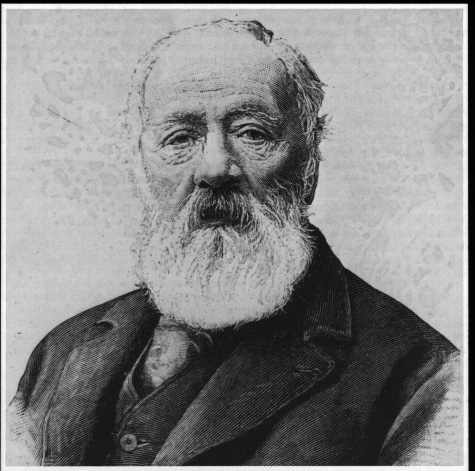
The two hundredth anniversary of the birth of Antonio Meucci will be celebrated next month. On 15 June 2002, the U.S. Congress passed a resolution (H.R. 269) declaring Antonio Meucci, not Alexander Graham Bell, the inventor of the telephone.
Born in Florence on 13 April 1808, Antonio Meucci showed an interest in technical matters from an early age. A few years after completing his schooling, he became chief engineer at the Florence’s most important theater. The tense political situation in Italy at the time was a factor in Meucci’s acceptance of an offer to become chief engineer at a large theater in Havana, and in 1935 he and his wife emigrated to Cuba. For 15 years, Meucci thrived in Havana. In addition to his main job, he set up an electroplating business and did a great deal of experimenting on his own.
Medical uses of electricity became one of Meucci’s principal interests, and in 1849, while administering shock treatment to a patient, he first conceived of using electricity and wires to convey speech. The patient, who had one electrode in his mouth, cried out in pain, and Meucci thought he heard the sound more clearly than usual. He then placed an electrode from the apparatus in his own ear, and thus heard sound conveyed through wires. Meucci dubbed his discovery the speaking telegraph and continued to experiment, though he had difficulty reproducing the phenomenon.
|
| |
|
Well-off financially, Meucci and his wife moved to New York City in 1850. They took up residence on Staten Island, in the town of Clifton, where they remained the rest of their lives. Meucci immediately became prominent within the Italian community in the New York area, and he provided lodging for Giuseppe Garibaldi, a leader of the Italian independence fight, for several years in the early 1850s.
In about 1854, Meucci’s wife’s rheumatoid arthritis became so severe that she could seldom leave her bedroom on the third floor of the house. This prompted Meucci to resume work on his speaking telegraph, and by 1861 he had built a telephone connection between the bedroom and his two laboratories, one in the basement and one behind the house.
Meucci made some efforts to gain investor interest in his invention, but was unsuccessful. In the same period, failure of his businesses reduced him to poverty. Nevertheless, over the years that followed, he worked from time to time on his telephone and on other inventions. Further misfortune, though, struck on 30 July 1871. The boilers of a ferryboat on its way to Staten Island, exploded, killing more than 60 people and injuring hundreds. Meucci was among the injured. His burns were so severe that he was confined to bed for three months, and, in order to meet expenses, his wife had to sell almost everything of value, including all of Meucci’s electrical apparatus.
In December 1871, Meucci formed a partnership with three others to promote the telephone invention. They engaged a lawyer to prepare a patent application, but the partners did not provide the $250 fee, so all that was prepared was a caveat, which cost $20. The lawyer, who did not understand the invention, prepared the caveat hastily and did not include any drawings. The partnership soon dissolved: one partner withdrew, another returned to Italy, and the third died. Meucci was able to find the required $10 to renew his caveat in December 1872, and he did so again the following year. But he did not have the funds to renew it a third time, so the caveat expired. It was just a year later, in early 1876, that Alexander Graham Bell filed his first telephone patent, and a patent examiner later said that had Meucci’s caveat been renewed, no patent would have been issued to Bell.
When Bell’s telephone became known, Meucci made efforts to prove his priority. In 1883, he assigned the rights to his invention to a group working to overturn the Bell patents. This group was not successful in the courts, but the assignment of rights presumably relieved Meucci’s poverty. Though he did not succeed in gaining recognition for his telephone invention, he did receive five patents in other areas, including hygrometry and effervescent drinks. On 18 October 1889, Meucci died without having gained the recognition he believed he was due, but his work was not forgotten. On the hundredth anniversary of his death, two books on Meucci were published in Italy, and in 1990, a square in Brooklyn was named after him. The Meucci home on Staten Island is today maintained as a museum, the Garibaldi-Meucci Museum, by the Order of the Sons of Italy in America.
Frederik Nebeker is Senior Research Historian at the IEEE History Center at Rutgers University in New Brunswick, N.J. Visit the IEEE History Center’s Web page at: www.ieee.org/organizations/history_center.







